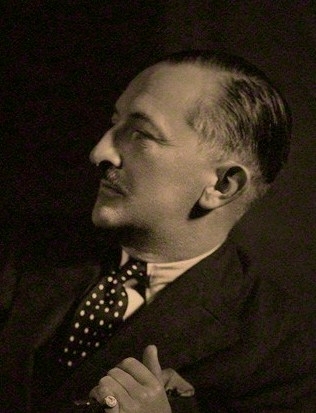The Return of Bulldog Drummond (Bulldog Drummond #7)
Book Details
| Title: | The Return of Bulldog Drummond (Bulldog Drummond #7) | ||||||||||
| Author: |
| ||||||||||
| Published: | 1932 | ||||||||||
| Publisher: | Hodder and Stoughton | ||||||||||
| Tags: | adventure, Bulldog Drummond (Fictitional character), fiction, Film Adaptation | ||||||||||
| Description: | [No description available. Suggest one here.] | ||||||||||
| Downloads: | 124 | ||||||||||
| Pages: | 181  |
Author Bio for McNeile, Herman Cyril

Herman Cyril McNeile, MC (28 September 1888--14 August 1937), commonly known as Cyril McNeile and publishing under the name H. C. McNeile or the pseudonym "Sapper", was a British soldier and author. Drawing on his experiences in the trenches during the First World War, he started writing short stories and getting them published in the Daily Mail. As serving officers in the British Army were not permitted to publish under their own names, he was given the pen name "Sapper" by Lord Northcliffe, the owner of the Daily Mail; the nickname was based on that of his corps, the Royal Engineers.
After the war McNeile left the army and continued writing, although he changed from war stories to thrillers. In 1920 he published Bulldog Drummond, whose eponymous hero became his best-known creation. The character was based on McNeile himself, on his friend Gerard Fairlie and on English gentlemen generally. McNeile wrote ten Bulldog Drummond novels, as well as three plays and a screenplay.
McNeile interspersed his Drummond work with other novels and story collections that included two characters who appeared as protagonists in their own works, Jim Maitland and Ronald Standish. He was one of the most successful British popular authors of the inter-war period before his death in 1937 from throat cancer, which has been attributed to damage sustained from a gas attack in the war.
McNeile's stories are either directly about the war, or contain people whose lives have been shaped by it. His thrillers are a continuation of his war stories, with upper class Englishmen defending England from foreigners plotting against it. Although he was seen at the time as "simply an upstanding Tory who spoke for many of his countrymen", after the Second World War his work was criticised as having fascist overtones, while also displaying the xenophobia and anti-semitism apparent in some other writers of the period.--Wikipedia.
Available Formats
No book directory. Upload has not been completed.This book is in the public domain in Canada, and is made available to you DRM-free. You may do whatever you like with this book, but mostly we hope you will read it.
Here at FadedPage and our companion site Distributed Proofreaders Canada, we pride ourselves on producing the best ebooks you can find. Please tell us about any errors you have found in this book, or in the information on this page about this book.